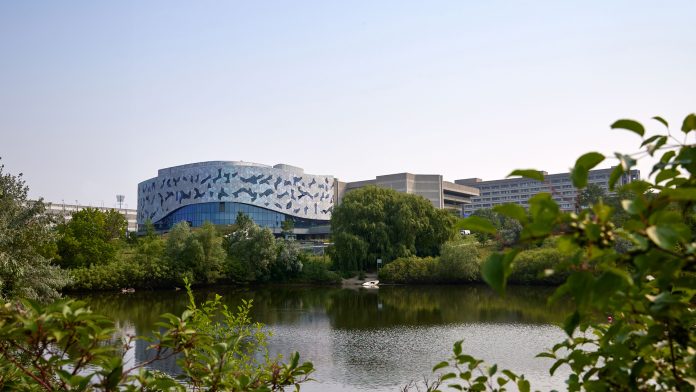York’s Satinder Kaur Brar and Sapna Sharma are among emerging global changemakers who are tackling pressing societal challenges with sustainable research partnerships.
Canada’s York University is rapidly building momentum on the global stage as home to world-class researchers and educators. The university conducts transformative and interdisciplinary research aligned with the Pillar 2 clusters of Horizon Europe.
Raising the bar in post-secondary education with three unique campus settings in the Greater Toronto Area – Keele, Glendon and Markham, and centres globally in Hyderabad, India, and Las Nubes in Costa Rica – York University is an international leader in creating a more sustainable and inclusive world.
Professor Satinder Kaur Brar, who is ranked by Stanford University as a top 2% researcher in the world, says: “The dynamic, interdisciplinary research vision at the Lassonde School of Engineering is what originally drew me to York. Its civil engineering department’s focus on sustainable development, water resources and design for climate change are all aligned closely with my own research interests.”
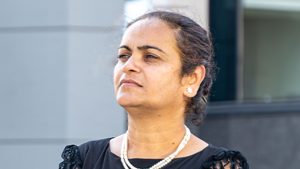
Brar is a leader in the field of advanced and applied biotechnology and currently holds the James and Joanne Love Chair in Environmental Engineering at York. Brar has collaborated with global research partners on technologies related to the remediation of contaminants and the valorisation of wastes into useful composite materials.
She is also actively pursuing a research partnership with the Indian Institute of Technology (IIT) Bombay and Banaras Hindu University in Varanasi, India, on the valorisation of agricultural residues into biochar in a circular economy approach, which can then be cycled back to remediate the environment. Likewise, she is pursuing decentralised wastewater treatment technologies with IIT Jammu in Jammu and Kashmir.
To date, Brar has conducted more than 350 peer-reviewed research studies and holds four registered patents. Her lab has successfully led to the training of more than 80 high-quality personnel in the industry.
Brar was also instrumental in the creation of One WATER, one of York’s Organised Research Units (ORUs), which operate as centres of research excellence. ORUs bring together a cluster of experts who work together across disciplines on pressing societal issues, including the global water crisis.
Building on One WATER’s work, York is the academic lead for the new UNITAR Global Water Academy (UGWA), a partnership between the United Nations Institute for Training and Research and York.
Launched in 2023, the Water Academy is an innovative platform for online, offline and immersive learning that will offer courses on sustainable water management practices and water security – some of which will be taught by York’s leading water experts.
UGWA’s inaugural director is Sapna Sharma, a York Research Chair in Global Change Biology, a freshwater expert and one of Canada’s Top Ten Women Water Scientists. Sharma studies how lakes worldwide respond to climate change, including rapid ice loss, warming water temperatures, degrading water quality, and changing fish distributions.
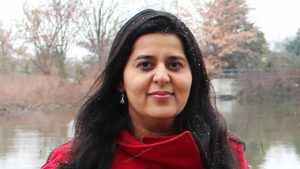
In addition to Brar and Sharma’s work, York has a deep well of expertise in water research and action, prime for partnerships through Horizon Europe’s Pillar 2 cluster of Climate, Energy and Mobility, as well as the cluster of Food, Bioeconomy, Natural Resources, Agriculture & Environment. York researchers stand ready to help develop scientific-based and governance solutions and applications to address water issues in some of the most underserved areas and for those most affected by climate change, flooding, and drought.
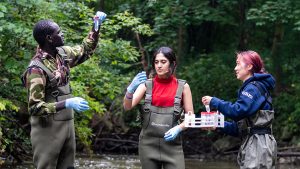
York University’s Centre for AI & Society is pioneering research partnerships for a connected future
In a bid to spearhead socially conscious artificial intelligence (AI) initiatives, the Centre for AI & Society (CAIS) at York University aims to bridge the gap between technological advancements and societal needs
Professor James Elder, the York Research Chair in Human and Computer Vision, who co-heads CAIS, said: “CAIS is one of the founding organised research units of Connected Minds, which unites research on neuroscience, AI and technology. It is particularly important to generate novel and beneficial technologies that will improve quality of life in Canada and elsewhere, as well as to understand how these disruptive technologies can best be integrated into society in order to minimise risk and maximise benefit for all.”
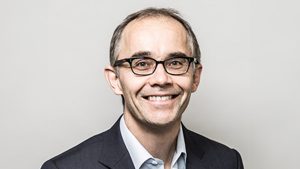
‘Connected Minds: Neural and Machine Systems for a Healthy, Just Society’ (Connected Minds) is a $318.4m York-led research initiative launched in 2023, funded in part by the Government of Canada’s Canada First Research Excellence Fund (CFREF), with more than 50 partners in the private, public and academic sector, both in Canada and beyond, and growing.
As part of Connected Minds, CAIS combines various disciplines, including behavioural and neuroscience studies, computational modelling, statistical analysis and computer vision design. The objective is to not only advance fundamental perception science and AI but also hold implications for urban mobility, social robotics and sports analytics.
Guided by Elder and Pina D’Agostino, an associate professor at York’s leading Osgoode Hall Law School and the scientific director for Connected Minds, CAIS’s mission extends beyond academic discourse. The centre aims to foster a sense of community among researchers engaged in AI and society studies while promoting dialogue through lectures and conferences on critical issues such as technology and democracy, and disability considerations in AI.
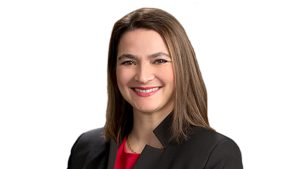
Aligned with York’s broader institutional goals, Connected Minds investigates how emerging technologies, such as AI, are impacting and transforming society. The Connected Minds programme is well-positioned to engage in potential Horizon Europe research partnerships working across Pillar 2 clusters.
D’Agostino said: “We’re seeing a changing society with increasing intermingling between humans and machines and a host of different technologies. The social framework – the law – hasn’t kept pace. What we’re trying to do is develop technologies and frameworks that are socially responsible before they are disseminated in society so we get ahead of the biases that may arise. That way, underrepresented communities don’t get sidelined as technologies progress.”
As AI continues to evolve rapidly, CAIS remains committed to driving innovation while ensuring responsible AI deployment. By fostering collaboration, dialogue, and cutting-edge research, the centre aims to shape a future where AI serves as a force for positive societal change.
Elder added: “Our systems approach emphasises how AI technologies operate when embedded in real-world contexts, interacting with humans and other technologies. Our research focuses on AI systems that address societal priorities in health care, smart cities, and sustainability and that are fair, explainable, reliable, and trusted.”
Prof exemplifies York U excellence in global health research through worldwide partnerships
York University is fully committed to international collaborations across multiple sectors, including with potential Horizon Europe partners in Pillar 2’s Health cluster
Forging strong relationships beyond geographical boundaries enables the York community to conduct meaningful work that defines the University’s approach to research and innovation: Interdisciplinary, collaborative and equitable.
Among those leading the way in this is Godfred Boateng, a quantitative sociologist and epidemiologist who was recently appointed Canada Research Chair in Global Health and Humanitarianism.
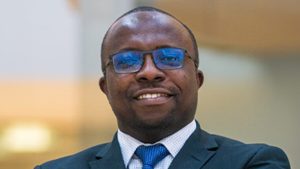
One of Boateng’s latest research projects is related to his CRC appointment. It aims to measure and quantify different forms of resource insecurity, including food, water, energy, and housing, and to advance our understanding of the overall health effects of environmental contaminants, both in the Global South and in Canada.
He says: “Research partnerships are key, and without them, global health research isn’t possible. York’s partnerships in the Global South greatly expand the scope of my research and allow me to reach populations and communities that would not be accessible otherwise.”
Boateng’s project looks to collect physiological, ecological, and demographic data from informal settlements in sub-Saharan Africa and Latin America. Using high-cost field equipment, Boateng will assess the quality of the air and water samples (stored, drinking, and groundwater) found in and around the settlements.
The data will validate scales, like the Household Water Insecurity Experiences (HWISE) Scale, co-developed by Boateng for use by public health practitioners, NGOs, government officials, and development agencies to monitor progress on targets set out in the United Nations Sustainable Development Goals for safe drinking water and sanitation.
The project begins in summer 2024 with 300 households in Accra, Ghana, in collaboration with the University of Ghana and the University of Cape Coast. It then expands to sites in Nigeria, Kenya, and Malawi and subsequently to Colombia and Mexico.
York recently announced the Global Research Excellence Seed Fund as part of its plan to strengthen its research partnerships worldwide, not only in health but also in other global challenges. The GRE Fund enables York faculty members to forge deeper global connections across communities, academia, and industry, including in Europe.
Rhonda Lenton, York President and Vice-Chancellor, said: “Building international, values-driven partnerships underscores York University’s dedication to working together cross-culturally to address critical world issues.”
To learn more about the GRE Fund, visit
yorku.ca/global-engagement/gre-global-fundings/
Please note, this article will also appear in the 18th edition of our quarterly publication.

